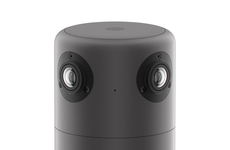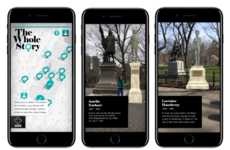
The BBC's UK-Based Viewers Can Enjoy 360-Degree Olympics Broadcasts
Rahul Kalvapalle — August 5, 2016 — Lifestyle
The BBC's UK-based viewers will be able to enjoy an unprecedented and immersive Olympics broadcast this year thanks to the British broadcaster's adoption of 360-degree broadcasts.
Users who own mobile virtual reality headsets as those viewing through browsers will make it possible for users to engage with Olympics broadcasts in a completely different way by panning around and viewing content around them almost as if they're on-location. The BBC is set to include 100 hours of 360-degree Olympics broadcasts from Rio de Janeiro, with one event each day being treated to this innovative and forward-looking broadcasting method.
This 360-degree Olympics broadcast could be an important step towards the adoption of immersive broadcasts in all sports.
Users who own mobile virtual reality headsets as those viewing through browsers will make it possible for users to engage with Olympics broadcasts in a completely different way by panning around and viewing content around them almost as if they're on-location. The BBC is set to include 100 hours of 360-degree Olympics broadcasts from Rio de Janeiro, with one event each day being treated to this innovative and forward-looking broadcasting method.
This 360-degree Olympics broadcast could be an important step towards the adoption of immersive broadcasts in all sports.
Trend Themes
1. Immersive Broadcasts - The adoption of 360-degree broadcasts for Olympics could pave the way for immersive broadcasts in all sports.
2. Virtual Reality - The use of mobile virtual reality headsets enables users to engage with Olympics broadcasts in a completely different way.
3. Forward-looking Broadcasting - The BBC's adoption of 360-degree broadcasts shows a commitment to innovative and future-oriented broadcasting methods.
Industry Implications
1. Broadcasting - The immersive 360-degree broadcasts present an opportunity for the broadcasting industry to explore new ways of engaging viewers.
2. Sports - The use of immersive broadcasts in Olympics could revolutionize how sports events are experienced by viewers and open up new possibilities for fan engagement.
3. Virtual Reality Technology - The adoption of 360-degree broadcasts for Olympics highlights the potential of virtual reality technology in enhancing the viewing experience.
3.2
Score
Popularity
Activity
Freshness























